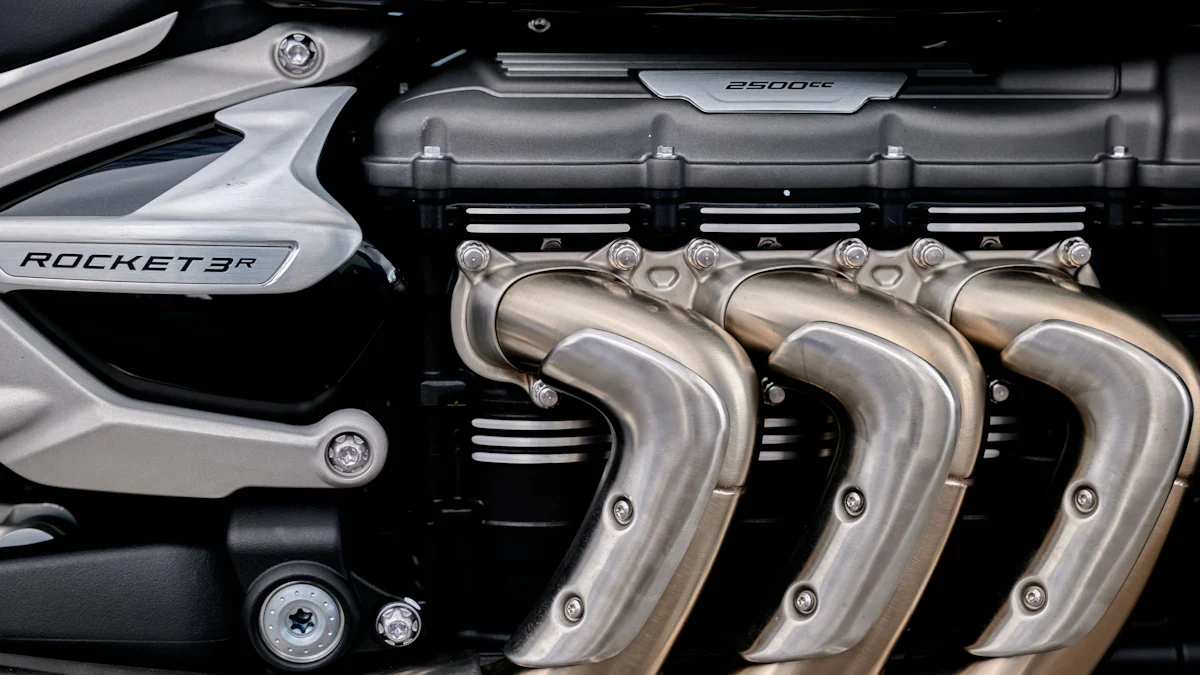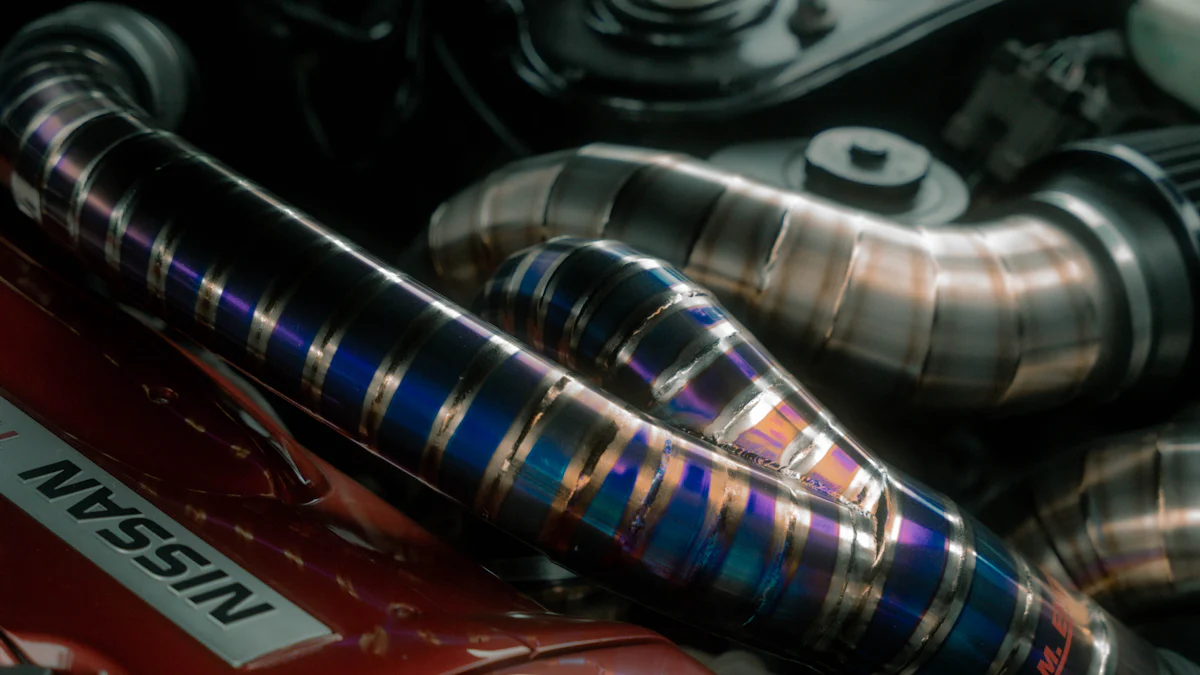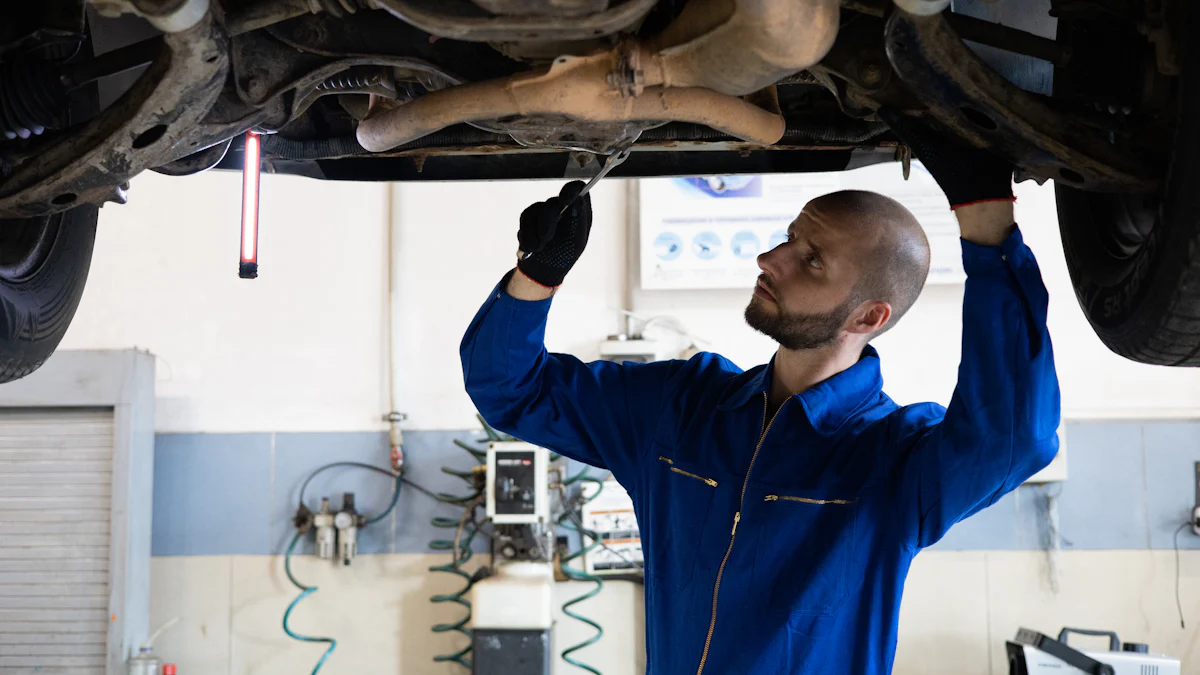
Exhaust manifolds are essential components in a vehicle’s exhaust system, beyond just expelling exhaust gases. They play a crucial role in optimizing the car’s efficiency and performance. Understanding the cost to replace exhaust manifold is vital for car owners. This blog aims to educate readers on what to expect financially when dealing with exhaust manifold replacement costs. Additionally, investing in a Performance exhaust manifold can further enhance your vehicle’s efficiency and power, making it a worthwhile consideration for those looking to upgrade.
What is an Exhaust Manifold?

Function of an Exhaust Manifold
An Exhaust Manifold serves a critical role in a vehicle’s exhaust system, responsible for collecting exhaust fumes from the combustion chamber and directing them into the exhaust system. By venting these gases safely outside the car, it ensures the engine operates efficiently. Additionally, Exhaust Manifolds are designed to be airtight, minimizing heat loss and reducing temperatures in the engine bay. This feature prevents sensitive components like the onboard computer from sustaining heat damage.
Role in the Exhaust System
The primary function of an Exhaust Manifold is to collect engine exhaust gas from multiple cylinders and deliver it to the exhaust pipe. This process aids in maintaining proper airflow within the vehicle’s engine, ensuring optimal performance and fuel efficiency. Moreover, Exhaust Manifolds play a crucial role in reducing back pressure, which can enhance overall engine power output.
Importance for Engine Performance
When considering Engine Performance, the significance of a well-functioning Exhaust Manifold cannot be overstated. It not only facilitates the efficient expulsion of exhaust gases but also contributes to maximizing horsepower and torque. By optimizing the flow of exhaust gases, it helps improve overall engine performance and responsiveness on various driving conditions.
Signs of a Bad Exhaust Manifold
Recognizing signs of a failing Exhaust Manifold is essential for maintaining your vehicle’s health and performance.
Common Symptoms
- Unusual Engine Noises: A faulty Exhaust Manifold may produce loud noises such as hissing or tapping sounds during operation.
- Decreased Fuel Efficiency: If you notice a sudden drop in fuel efficiency without any apparent reason, it could indicate issues with your Exhaust Manifold.
- Strong Smell of Exhaust Fumes: An overpowering smell of exhaust inside or around your car suggests potential leaks or cracks in the Exhaust Manifold.
- Check Engine Light: The illumination of the check engine light on your dashboard could signal underlying problems with your vehicle’s components, including the Exhaust Manifold.
Impact on Vehicle Performance
A malfunctioning Exhaust Manifold can have detrimental effects on your vehicle’s overall performance:
- Reduced Power Output: Leaks or cracks in the manifold can lead to decreased engine power and acceleration capabilities.
- Engine Misfires: Poorly functioning manifolds may cause irregular combustion cycles within your engine, resulting in misfires and reduced efficiency.
- Environmental Impact: A damaged manifold can contribute to increased emissions due to improper combustion processes, impacting both performance and environmental standards.
Factors Influencing Replacement Costs
When considering the replacement costs associated with an Exhaust Manifold, several key factors come into play. Understanding these elements can provide valuable insights for car owners preparing for potential repairs.
Labor Costs
Average Labor Rates
The average labor rates for replacing an Exhaust Manifold typically range between $239 and $302. This cost covers the skilled work required to remove the old manifold and install a new one efficiently. Labor expenses are influenced by various factors, such as the mechanic’s expertise, shop location, and the complexity of the job.
Time Required for Replacement
The time needed to replace an Exhaust Manifold varies depending on the vehicle model and any additional complications encountered during the process. On average, mechanics spend around 4 hours completing this task. This duration includes disassembling components, fitting the new manifold securely, and conducting necessary tests to ensure proper functionality.
Parts Costs
OEM vs. Aftermarket Parts
When it comes to selecting parts for your Exhaust Manifold replacement, you have two primary options: Original Equipment Manufacturer (OEM) parts or aftermarket alternatives. OEM parts are designed by the vehicle manufacturer and are known for their precise fit and quality assurance. On the other hand, aftermarket parts offer a more cost-effective solution but may vary in terms of durability and compatibility.
Cost Variations by Vehicle Model
The cost of parts required for replacing an Exhaust Manifold can fluctuate based on your specific vehicle model. Different cars have unique engine configurations and component designs that impact part compatibility and pricing. It is essential to consult with your mechanic or parts supplier to determine the most suitable options for your vehicle.
Additional Factors
Location and Shop Rates
The geographic location of your chosen repair shop can significantly influence the overall replacement costs for an Exhaust Manifold. Urban areas with higher living expenses tend to have pricier labor rates compared to rural regions. Additionally, specialized automotive shops may charge premium prices for their services due to their expertise in handling complex repairs.
Complexity of the Job
The intricacy of replacing an Exhaust Manifold can also affect total costs. Some vehicles have tightly packed engine compartments that require extensive disassembly before accessing the manifold. In such cases, mechanics may need more time to complete the replacement, leading to increased labor charges.
By understanding these critical factors influencing replacement costs, car owners can make informed decisions when faced with issues related to their exhaust system.
Cost Estimates for Different Scenarios

Average Cost to Replace Exhaust Manifold
When considering the average cost to replace an Exhaust Manifold, car owners should anticipate a range of expenses based on various factors. The general cost typically falls between $150 and $3,000, depending on the vehicle type and the quality of parts used. This wide price range highlights the importance of understanding the specific needs of your vehicle to make informed decisions regarding replacement costs.
General Cost Range
- For standard vehicles with common exhaust manifold designs, the average cost usually hovers around $500 to $1,500. These estimates cover both labor and parts expenses required for a seamless replacement process.
- However, for luxury or high-performance vehicles that demand specialized components or intricate installation procedures, the cost can escalate significantly. In such cases, car owners may face expenses ranging from $2,000 to $3,000.
Specific Examples by Vehicle Type
- Sedans: The average cost for replacing an exhaust manifold in sedans like Toyota Camry or Honda Civic ranges from $300 to $800, making it a relatively affordable repair compared to other vehicle types.
- SUVs: Larger vehicles such as Ford Explorer or Chevrolet Tahoe may incur higher replacement costs due to their complex engine layouts. Car owners can expect prices between $800 and $1,500 for exhaust manifold replacements in SUVs.
Cost Breakdown
Understanding the breakdown of costs associated with replacing an Exhaust Manifold is crucial for budgeting and decision-making. By analyzing how expenses are distributed between labor, parts, and additional fees, car owners can gain valuable insights into the financial aspects of this essential repair.
Labor vs. Parts
- Labor Costs: On average, labor expenses constitute approximately 50% to 70% of the total replacement costs for an Exhaust Manifold. Mechanics’ expertise and efficiency play a significant role in determining labor charges.
- Parts Expenses: The remaining portion of the overall cost is allocated towards purchasing necessary parts for the replacement. Depending on whether car owners opt for OEM or aftermarket components, part costs can vary significantly.
Additional Fees and Taxes
- Apart from direct labor and parts expenditures, car owners should also consider potential additional fees and taxes that might impact the final bill. These extra charges could include shop supplies, disposal fees for old parts, or local taxes imposed on automotive repairs.
Cost-Saving Tips
Navigating through potential cost burdens associated with replacing an Exhaust Manifold can be challenging but not impossible. Implementing strategic approaches to minimize expenses without compromising quality is key to managing financial concerns effectively.
Choosing the Right Parts
- Prioritize Quality: Opting for high-quality OEM parts ensures durability and compatibility with your vehicle’s specifications in the long run.
- Consider Aftermarket Alternatives: While aftermarket parts offer cost-effective solutions, conduct thorough research to select reputable brands known for their reliability.
Finding a Reputable Mechanic
- Seek Recommendations: Consult with friends or online reviews to identify trustworthy mechanics with proven track records in handling exhaust system repairs.
- Obtain Multiple Quotes: Request quotes from different repair shops to compare prices and services offered before committing to a particular mechanic.
By following these prudent tips and being proactive in assessing replacement options carefully, car owners can navigate through exhaust manifold replacement costs more confidently while maintaining their vehicles’ optimal performance levels.
Regular inspection is crucial to prevent major issues with the exhaust manifold. Using OEM quality parts is recommended for optimal maintenance, ensuring a balance between cost and performance. Stainless steel fabrication offers durability without compromising efficiency. Avoid using exhaust wrap, as it can accelerate manifold degradation. When replacing the exhaust manifold, consider upgrading questionable bolts for enhanced engine performance and longevity. By understanding these maintenance tips, car owners can anticipate costs effectively and manage their vehicle’s health proactively.
Post time: Jun-11-2024



